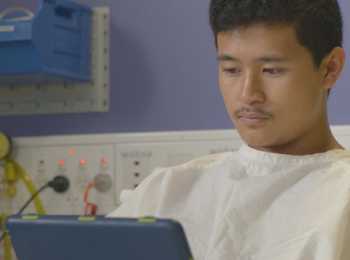Work is an important part of life – and not only for the money. Returning to work can help you to regain your confidence and independence and bring back a “normal” routine that gives you something to focus on other than cancer.
But the transition back to the workforce can be hard and it will help if you give yourself some time to prepare.
Going back to work
It is up to you to decide when you are ready to go back to work (and to discuss this decision with your treating team and your boss).
Before you return, here are some things you may want to consider:
- Know your limits. Don’t try to do too much too soon, and do take regular breaks. You might need to change the type of tasks you’re doing, the length of your shifts, to reduce your hours, or work from home where possible. You might still be dealing with side effects such as fatigue and changes to your concentration, so be kind to yourself.
- If it’s relevant to your work roster, tell your boss about any follow-up appointments, scans and treatments ahead of time (including thinking about if you'll need rest days or travel time before or after these).
- Adjust your daily routine if possible, so you are doing certain tasks at times you feel the best (e.g. in the mornings if that's when you have the most energy and focus).
- Decide how much and what you want to tell your colleagues about your cancer. You are in control of this. You may only wish to tell your boss and/or direct supervisor, and even then only limited details. It's up to you and what you feel comfortable with.
Canteen’s Education and Career Service can help you map out your return to work.
I got back into life as an adult via volunteering. Flash forward to current times I landed myself a full-time position at a childcare centre. Amy, 25
Getting a new job
Looking for a new job can be daunting for anyone. Add cancer and it might seem overwhelming.
Whether you’re looking for your first job or have been inspired to make a change, you have many options and possibilities. Take your time to think about what is right for you.
If you are qualified for a job and physically able to do the work, your cancer history should not affect your ability to get a job.
These tips may help.
- An employer cannot refuse to hire you because of your medical history.
- You are not legally obliged to tell a future employer about your cancer. It is a personal decision to tell or not.
- An employer must keep any information about your medical history confidential.
- An employer is allowed to ask you in an interview about your abilities to perform tasks related to the job.
- You may find it helpful to provide a potential employer with a letter from your doctor that explains your health status and ability to work.
- If you are worried about how to explain gaps in your resume because of treatment, think about organising it by experience and skills instead of date.
- A career counsellor can give you advice and help with resume writing and interview skills.
- Keep in mind – job searching can be stressful and discouraging for anyone. Go easy on yourself. Stay positive and motivated by making time for yourself to have some fun, relax and exercise too.


















